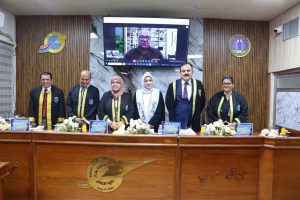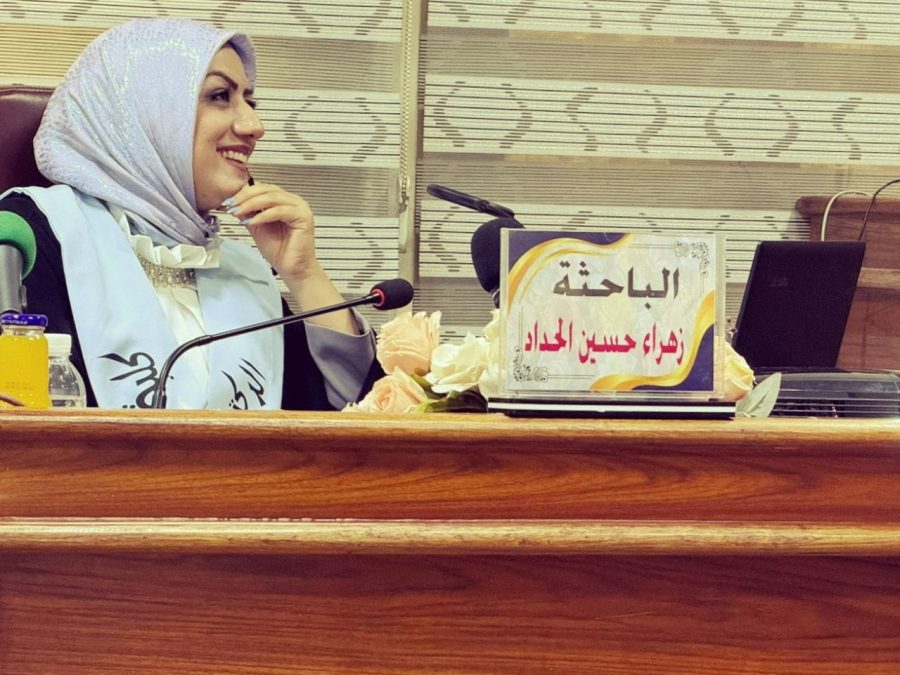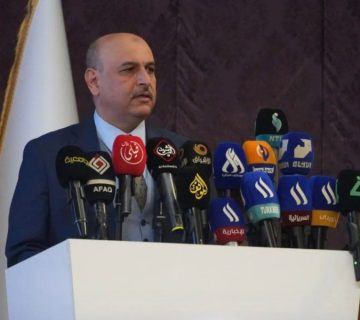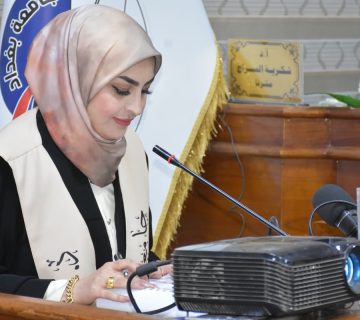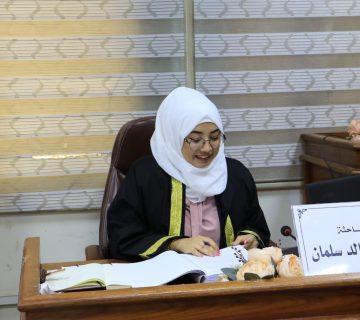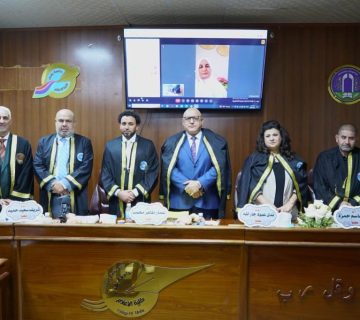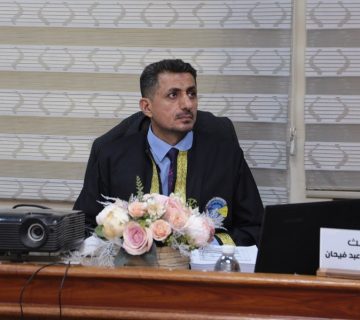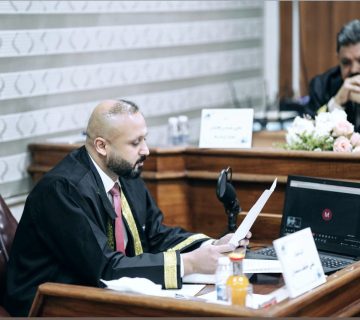A doctoral thesis titled “Journalistic Treatment of Iraqi Economic Crises in Specialized Electronic Press and its Relationship to Information Adoption by Specialists: A Survey Study” was discussed at the College of Media, University of Baghdad. The researcher, Zahraa Hussein Jabbar from the Department of Journalism, presented the thesis.
The discussion committee was composed of Professor Dr. Shukriya Kawkaz Al-Sarraj as the chair, Assistant Professor Dr. Basim Wahid Joni as the supervisor, and members including Professor Dr. Mohsen Jalloub Jabbar, Assistant Professor Dr. Beiraq Hussein Jumaa, and Assistant Professor Dr. Anmar Wahid, along with external member Professor Dr. Sherif Darwish Al-Labban.
The research aimed to uncover the extent to which specialized electronic press is interested in topics of Iraqi economic crises and its relationship to the adoption of information by specialists. It also sought to reveal the journalistic treatment of economic crises in the specialized Iraqi electronic press and its relationship to information adoption by specialists, addressing the research problem of the ambiguity surrounding the nature of journalistic interest in economic crises topics.
The researcher found that the “Economy News” website showed varying interest in five types of economic crises: financial crises, oil crises, electricity crises, commodity market crises, and water and desertification crises, with “financial crises” being the most prominent.
The study concluded that the “Iraqi Economists Network” website demonstrated interest in various journalistic frames for addressing economic crises. These frames included the “responsibility frame,” the “conflict and competition frame,” the “human interest frame,” the “moral frame,” the “cooperation and economic outcomes frame,” and the “strategy frame.” The results indicated a convergence in the use of these frames, with the “responsibility frame” being the most frequent, occurring 325 times, accounting for 28.9% of the instances.
